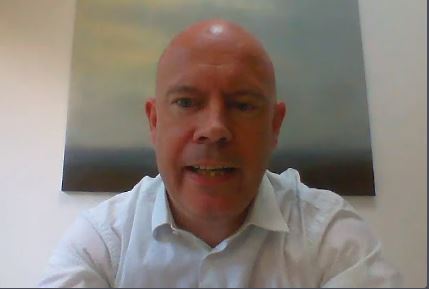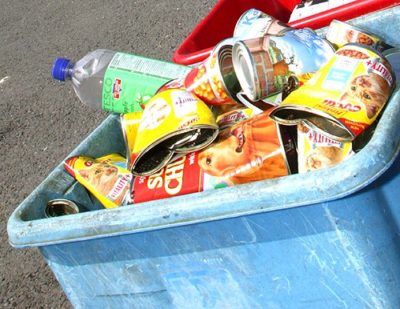“Big improvements” are needed in how local authorities record waste collection data, WRAP’s special advisor for collections and recycling has said.
Chris Mills was speaking at the virtual 2020 LARAC Conference yesterday (14 October) and explained that data improvements are needed to help correctly apportion funds under Extended Producer Responsibility reforms.

Chris Mills, special advisor for collections and recycling at WRAP, speaking at the 2020 LARAC Conference
Mr Mills said that WRAP has carried out more than 15 years of modelling with local authority partners, and he said the data acquired isn’t detailed enough for new materials which are going to be introduced under consistent collection regulations.
“Collection costs are complex, but if we are really trying to get to grips with how much consistent collections will cost and what the performance differences are, we have to make some big improvements in data and the analysis of that,” he explained.
Difference
Mr Mills added: “There is a lot of difference in how costs are currently reported, in revenue outturn numbers, and waste data flow, frequently they are not granular enough for some of the material additions which are going to come in the near future.
“If we are really trying to get to grips with how much consistent collections will cost , we have to make some big improvements in data”
“This is partly partly because they involve lots of categories such as flats, schools and other sources of waste which are difficult to report on. We really need to unwrap those.
“WRAP has been doing 15 years of modelling with our local authority partners right across the UK, and we still see a lot of variation in different accounting basis. How those numbers are then apportioned for EPR costs could be difficult.
“We are expecting around £800 million a year from England alone under EPR for local authority costs, getting a real clear handle on this is really important, but a tricky environment”.
Portal
Mr Mills stated that waste from offices, schools and hospitality venues pose problems for local authorities because of issues such as commercial sensitivity.
He also said WRAP is updating its portal which local authorities can use to record indicative costs and performance.
From early 2021, he says the portal will take into account the fact that collections have evolved in recent years, and new materials will be added soon to comply with consistent collection legislation, including metals, films and cartons.
He also said many local authorities are expected to change their services in the wake of Covid-19 and the subsequent recession.
“There is a lot of focus on kerbside costs and data at the moment, but local authorities collect from a range of sources,” he explained.
“Before Covid, we were holding many face to face meetings with everyone across the supply chain to incorporate them into the discussion. People like vehicle manufacturers, who will also need to make changes.

Under Defra’s proposals councils will be mandated to collect a consistent set of core materials including cans, plastic bottles and glass containers
“There is also lots to do in regards to procurement and contracts, and we have teams helping councils with this. We anticipate a big period preparing for this change, and the earnings from EPR helping to facilitate this so it needs to be accurate.
“There is a lot of complexity at the moment, we expect more materials to be added under EPR. There are also material and behaviour changes changes too, newsprints have basically halved over the last decade or so. And we are not yet certain how producers will respond under fee modulation. We need to make sure we account for that properly in collection costs”.
Consultation
In its consultation in 2019, Defra proposed that collections from households and flats should include: glass bottles and containers; paper and card; plastic bottles; detergent, shampoo and cleaning products; plastic pots tubs and trays; and, steel and aluminium tins and cans.
Defra estimates that 70% of local authorities in England already collect these dry recyclable materials.
The post LARAC 2020: ‘Improvements’ needed in council data appeared first on letsrecycle.com.
Source: letsrecycle.com Packaging


